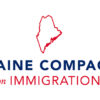Foreign Entrepreneur Walks Away From Startup Because of Broken U.S. Immigration System
Date: April 14, 2015
While Demijan Klinc was working on his PhD in electrical and computer engineering at Georgia Tech, he created a promising “cone of silence” technology that made it more difficult for sensitive data transmitted over wireless phones to be intercepted. In 2009, while still in school, Klinc partnered with one of his professors and another Georgia Tech contact to turn his technology into the Atlanta-based startup, Whisper Communications. Klinc says founding Whisper was “super exciting,” and the company had promise, earning a competitive grant from the National Science Foundation.
But two years into his venture, as he was preparing to graduate and lose his student visa, Klinc began to worry about whether he’d be able to get the H-1B high-skilled visa he’d need to continue working at Whisper for the next several years. With the high costs and legal paperwork associated with sponsoring such a visa, Klinc says, “There was a lot of uncertainty about whether it would even be feasible for a company just getting started like Whisper to sponsor me.” And that difficulty affected not only Klinc, but his longtime girlfriend as well. She hoped he’d be offered a position that would put him more squarely on the path to getting a green card; as long as Klinc held the H-1B visa, she would be ineligible to work as his domestic partner and dependent.
So, when Klinc was offered a position as a video conferencing engineer at Apple, he walked away from his startup – essentially sapping the company of half its research staff. “Visa-wise, going to Apple solved every single problem that I had,” Klinc explains. And while it wasn’t the only factor that pushed him, he said it was a particularly compelling one. “It’s a fact of life,” he says, “that visa considerations often prevail.”


